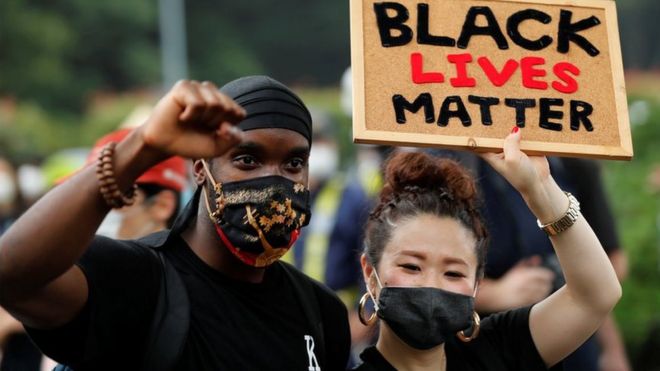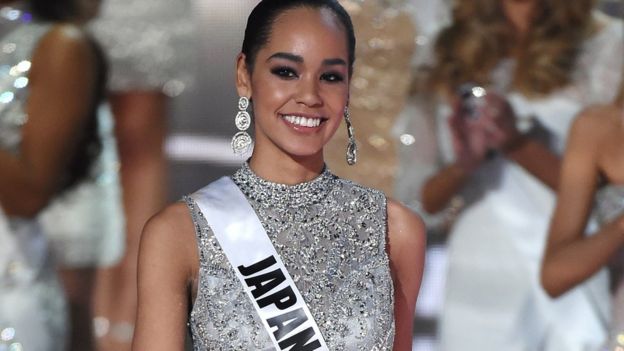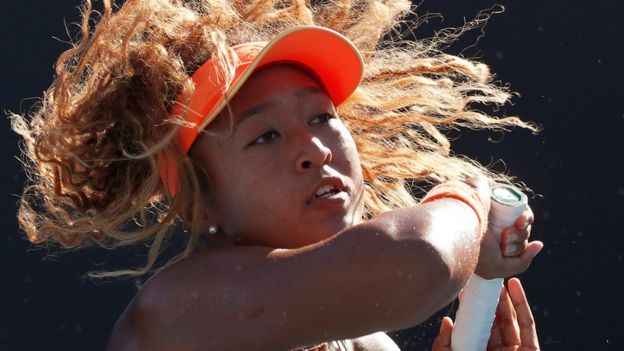Black Lives Matter pushes Japan to confront racism

To many Japanese, racism towards black people has long been considered something that happens in the US or Europe, not at home.
But when the death of George Floyd in the US sparked a wave of protests demanding that Black Lives Matter, people in Japan joined in too.
The protests and marches in major cities pushed a debate about racism in the country, and whether enough was being done to confront and change things.
'Paper cuts of racism'
In June, public broadcaster NHK aired a segment to explain to Japanese audiences what was happening in the US, with the protests over George Floyd's death.
The report, in a news show aimed at younger audiences, featured an animated video depicting the protesters as grotesque stereotypes, deeply steeped in racist imagery: caricatures with exaggerated muscles and angry faces, and with looters in the background.
The reaction was largely negative - the US embassy called the segment "offensive and insensitive".
One particularly vocal critic was Baye McNeil, an African-American teacher, author, columnist and long-time Japan resident.
He tweeted that it was an "offensive racist commentary" and it was time for Japan to stop the "lame excuses" on handling of black issues.
NHK later apologised, and following the widespread attention Mr McNeil's articles received, invited him in to discuss the problem.
He soon found himself giving a talk to the entire NHK staff, which he said was an "extremely interesting" experience.
"There were a lot of great questions that showed that a lot of people did not know there were problems with blackface or white washing. It was really important that someone came in and was able to explain it."
Mr McNeil has both praise and criticism for the country he has lived in for 16 years. He says that in his immediate surrounding of friends and students, people have been very welcoming and open - and often curious and receptive to learn about his outside view on the Japanese experience.
At the same time, he points to a level of everyday casual racism he experiences.
"I'm safer here than in the US, no question," he says. "I haven't experienced police brutality like you would in the US, but yet there are paper cuts of racism every day and those also add up. Being other-ised on a daily basis means you still live through some tough stuff."

It's an experience he says, that's not unlike that of the many so-called "hafu", people who are biracial - with one parent from Japan and one from another ethnic group. And it proves wrong the idea that there simply is one general kind of xenophobia, equally directed at all non-Japanese groups in the country.
"Bi-racial Japanese have a different experience according to what they are mixed with," Mr McNeil explains. "The ones mixed with whites are the ones who get the modelling contracts and are put on a pedestal - but it's a very different story if you're half Korean or half black."
For example, when a half black Japanese woman was crowned Miss Japan in 2015, she was berated in online comments as unfit to represent the country.
Tennis champion Naomi Osaka has a Japanese mother and a Haitian father. In an advertising campaign, her skin was made lighter and comedians were joking she maybe should get some bleach to change her skin colour.
Osaka has herself been very vocal against racism both in Japan and in the US. This week, she withdrew from a top US tournament in protest against police violence against black people in the US, after which the entire match day was postponed.



Comments
Post a Comment